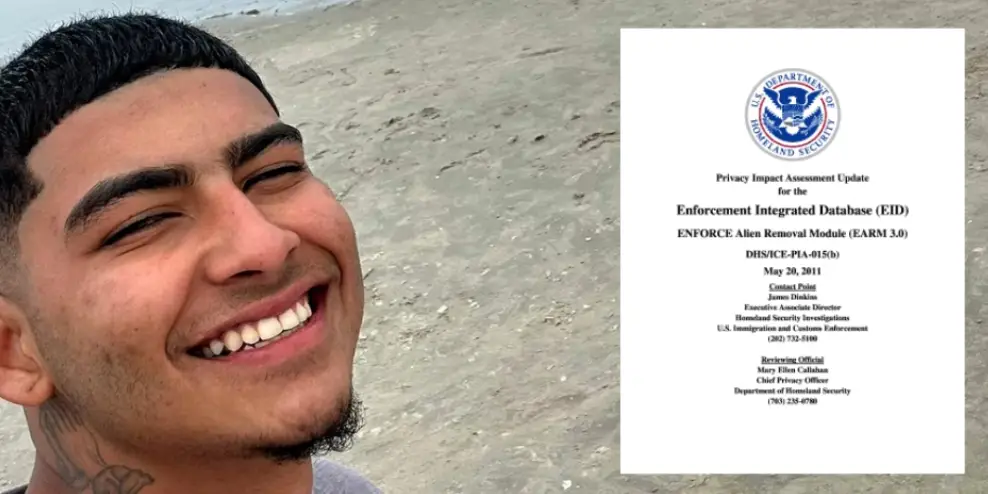How the Trump Administration Built Its Deportation Policy on a Web of Errors and Deception.
It is a story of deception, lies, ruthless bureaucracy – and it is a story that became cruel normality under the Trump administration. Once again, the truth is on trial, and once again, it is revealed that the Trump administration enforced deportations through a network of half-truths, software errors, and bureaucratic arbitrariness.
The latest case is that of O.C.G., a Guatemalan migrant who fled to the United States to escape persecution. His flight from violence led him through hell – kidnapping and rape in Mexico, a price paid for his identity as a gay man. When he arrived in the United States, he hoped for protection. But what awaited him was a Kafkaesque bureaucracy that pushed him into another nightmare.
In February 2025, U.S. District Judge Brian Murphy of the U.S. District Court for the District of Massachusetts ruled that O.C.G. could not be deported to Guatemala because he faced persecution there. Yet the Trump administration stripped him of that protection. They deported him to Mexico without giving him a chance to present his fear of persecution in Mexico. And when O.C.G. sued, the Trump administration defended itself with a cold lie: They claimed they had asked the man if he was afraid to return to Mexico, and he had said no.
But in a court document filed Friday, the Trump administration had to admit that this claim was false. Brian Ortega, the assistant field office director for ICE’s Enforcement and Removal Operations, acknowledged that there is no record of such a question being asked. The lie was the product of a "software tool" – ICE's so-called "ENFORCE Alien Removal Module" (EARM), a system that manages deportation cases and allows staff to insert comments.
A "software error," then. A mask for the truth. An excuse for a crime.
A Pattern of Cruelty: The Case of Daniel Lozano-Camargo
But O.C.G. is not the only one. The case inevitably recalls Daniel Lozano-Camargo, a Venezuelan migrant who also sought to escape violence. He was promised the right to a fair asylum process in a settlement. But the Trump administration ignored this agreement. Lozano-Camargo was deported to El Salvador in March 2025 – a country he had no connection to, a country that could not offer him protection.
Our investigations on the ground in El Salvador confirmed the scale of this disaster. A man to whom the United States promised protection, whom they then betrayed. Lozano-Camargo, a 20-year-old Venezuelan living in Houston, Texas, running a car detailing business, was deported to El Salvador on March 15. He was accused of having ties to a "violent terrorist gang," according to court documents – a completely baseless allegation. He had never committed any crimes, paid his taxes, and was fully integrated.
His case was heard before the U.S. District Court for the District of Columbia, where District Judge Christopher R. Cooper ruled that Lozano-Camargo’s deportation violated the settlement and existing law. Cooper made it clear that the right to a fair process cannot be overridden by bureaucratic arbitrariness. But the Trump administration ignored the ruling – and deported Lozano-Camargo anyway.
This court decision marks the second time that a judge has required the Trump administration to ensure the return of a migrant deported to El Salvador.
The Case of Kilmar Abrego Garcia – The Limits of the Lie
But there is yet another case that exposes the system of lies in the Trump administration: Kilmar Abrego Garcia, a Salvadoran who was deported to El Salvador despite a U.S. immigration judge granting him protection from persecution. His case was heard by U.S. District Judge Paula Xinis at the U.S. District Court for the District of Maryland. Xinis found that the administration provided no evidence for its claim that diplomatic secrets prevented Abrego Garcia’s return. She called the government’s explanations a "facade."
Judge Xinis went even further, demanding that the Trump administration clearly demonstrate what steps it had taken to bring Abrego Garcia back. The government’s response? Fog, obfuscation, empty promises. "There are simply no details," Xinis stated. "This is basically 'just trust us.'"
